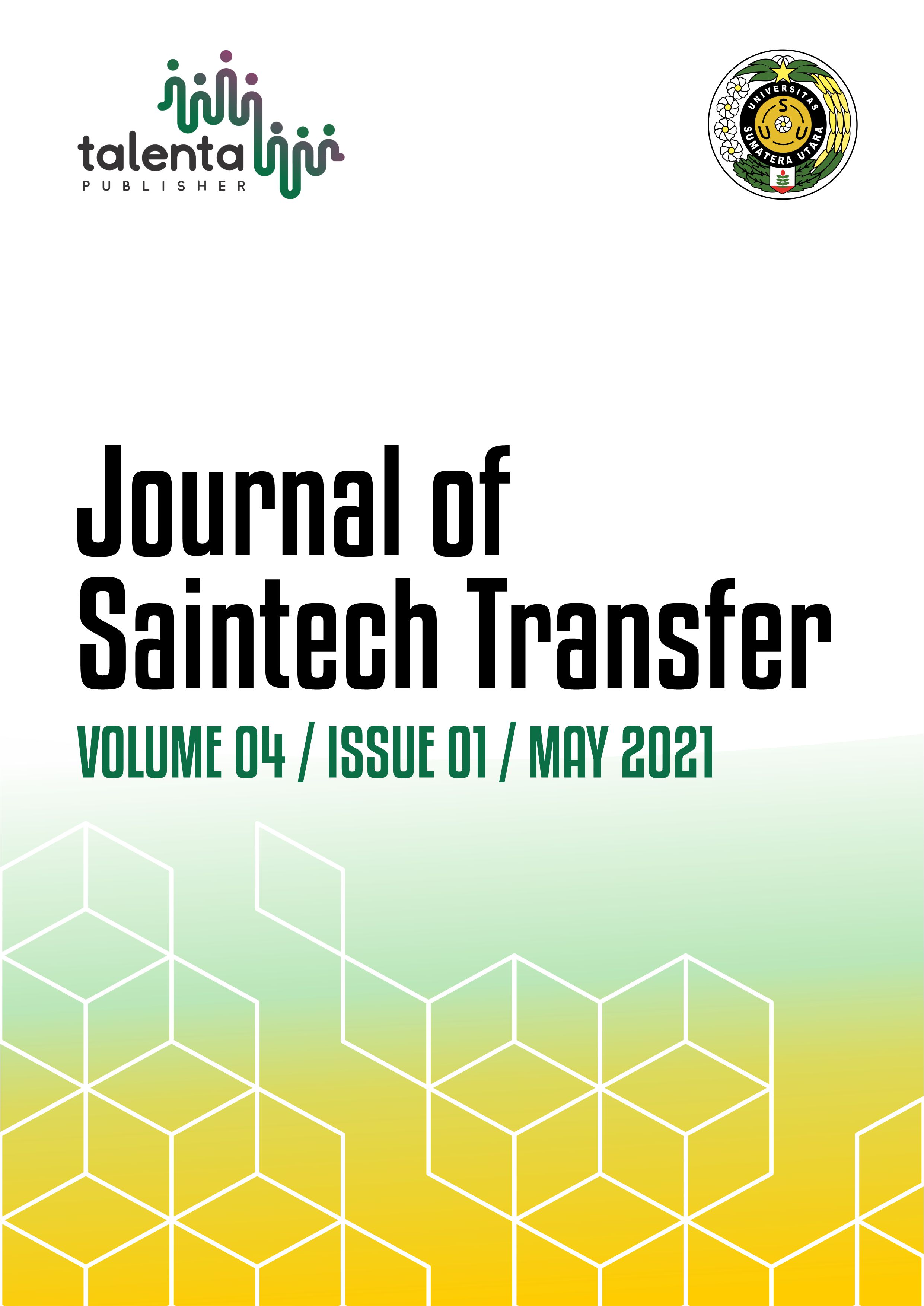Survey of Knowledge and Practice in Facing Covid 19 among Communities in Malaysia and Indonesia: Towards Apply New Norm
DOI:
https://doi.org/10.32734/jst.v4i1.5119Keywords:
Keywords : Knowledge, behaviour, covid, prevent, new normAbstract
Abstract Nowdays, COVID 19 is still health problem in many countries in the world including Malaysia and Indonesia. The number of confirmed cases remains high. An effort to resolve the Covid 19 problem, both Indonesian and Malaysian governments had been taken preventive strategies to break the chain of transmission through the implementation of health protocol including using a mask, keeping a physical distance from another people at least 2 meters and washing hands as often as possible with running water. However in reality, there are many people had not implemented yet health protocol properly. This activity using cross sectional survey with the purpose of this activity was to analyze knowledge and behavior of community in facing COVID 19 in Malaysia and Indonesia. The results showed that in Medan, Indonesia. Out of 203 respondents, half of respondents (59.1%) had good knowledge regarding Covid 19, as much as 21.2% with fair knowledge and 19.7% had poor knowledge. While most of respondent had good practice (72.9%) and 27.9% had bad practice in applying health protocols to prevent the covid transmission. In Malaysia, out of 317 respondents aged 18 years and more, 78.9% of respondents had knowledge regarding symptoms of Covid 19, as much as 69.1% of respondents had knowledge regarding cause of the disease, 71.6% had knowledge about  transmission of the disease. Most of them (96.3%) had good practice to preventive measures for Covid 19, only 6.3% of respondent had not implemented preventive measures.  To prevent the transmission of covid 19 in future time, it is necessary to identify knowledge and behaviour of community and then followed by  socialize regarding the disease to increased knowledge of community regarding the disease and apply new norm to prevent transmission of the disease.
Â
Â
Downloads
References
Li Q, Guan X, Wu P, Wang X, Zhou L, Tong Y, et al. Early Transmission Dynamics in Wuhan, China, of Novel Coronavirus–Infected Pneumonia. N Engl J Med. 2020 29th January;382(13):1199–207.
Ceraolo C, Giorgi FM. Genomic variance of the 2019â€nCoV coronavirus. J Med Virol. 2020;92:522–8.
COVID-19 Handling Task Force. RI (2020). Map of the Distribution of COVID-19. Retrieved November 1, 2020, from https://covid19.go.id/peta-sebaran-covid19
World Health Organization. Coronavirus disease 2019 (COVID-19) Situation Report – 68. [Internet]. 2020 [cited 28 March 2020] Available from: https://www.who.int/emergencies/diseases/nov el-coronavirus-2019/situation-reports
Pemko Medan. (2020). General data regarding COVID-19 in Medan City. Retrieved November 1, 2020, from https://covid19.pemkomedan.go.id/index.php?page=stat_medan.
Ministry of Health, Malaysia. 2020. COVID-19latest update. Retrieved from http://www.MCH-gov.my/index.php/pages/view/2019.ncov-wuhan
Ministry of Health. R I. (2020). RI. Minister of Health Decree No. HK.01.07 / Menkes / 382/2020 concerning Health Protocols for Communities in Public Places and Facilities in the Context of Prevention of COVID-19 Control. Jakarta, Indonesia: Ministry of Health of the Republic of Indonesia.
Downloads
Published
How to Cite
Issue
Section
License
Copyright (c) 2021 Journal of Saintech Transfer

This work is licensed under a Creative Commons Attribution-ShareAlike 4.0 International License.















